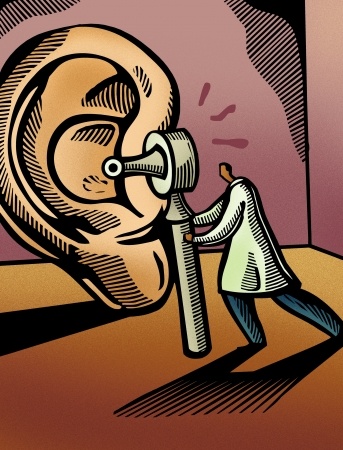Cheating death and fighting communism: that is how a fellow officer once described our job. It was meant to be funny, but as time went on it seemed all too true.
I spent more than ten years in law enforcement, all of it on the street in uniform patrol. I've been a patrol officer, instructor, sergeant and lieutenant.
Do not report crimes here. Nothing here should be considered legal advice. All opinions are my own.
Generally, yes. Some departments may have policies that restrict the use of discretion.
If a police officer can develop reasonable, articulable suspicion that you are involved in criminal activity, you can be detained. You are not free to leave in this case.
Any police officer can walk up and start talking to you, including asking for ID, without any articulable suspicion. However, you are free to leave in this circumstance.
If you want to leave, and don't know if you are able to, politely ask the officer if you may leave. He or she will let you know.
"spade" - I do not think that word means what you think it means.
Oh, and your premise is false.
First question - Absolutely. There are no prohibitions or requirements for any specific religion or absense thereof to be a police officer. Of course, any religious biases that prevent you from impartially and effectively enforcing the laws of your state should prevent you from pursuing a career in law enforcement. For example, if you believe sharia law trumps the laws of your state, you have no place in police work.
Second question - I sure hope rules are not changed to allow police officers to wear a hijab. Police officers are required to wear uniforms, and that means a standard way of dressing. Clothing visibly worn for religious purposes should not be part of a police officer's uniform. A law enforcement officer is expected to impartially enforce the law for all citizens, and when there is an obvious bias it undermines the public's trust in the officer and agency.
If you believe you should be able to wear a hijab at work, then law enforcement is not the job for you.
Keep in mind that the nature of law enforcement does not allow you to regularly take off holy days. This is the same for Christians have to work Easter, and Jews who work on Yom Kippur.
Faith is very important, and if your faith will cause you conflict in a law enforcement career, you might want to consider an alternative job path.
Audiologist
 Can just one loud concert do serious damage to your ears?
Can just one loud concert do serious damage to your ears?
Football Official
 Were the replacement refs actually worse than the regular refs?
Were the replacement refs actually worse than the regular refs?
Aircraft Mechanic
 Did you ever catch something critical right before a plane was about to take off?
Did you ever catch something critical right before a plane was about to take off?
Yes, it is called fraud. It is a kind of theft - taking something (a service or property) that doesn't belong to you. Oftentimes it is a felony.
Yes.
At the very least it would appear that he is trespassing. But, do you know that he doesn't have something worse planned? Rape, robbery, murder?
Door to door salesmen are certainly capable of committing very bad crimes. Additionally, criminals can pose as door to door salesmen with the intent of getting in your house to rape/rob/murder you.
A stranger in your home that is refusing to leave is a serious concern and possibly a very real threat. Make sure you communicate to the dispatchers that the man is a stranger - not a friend or family member - and he is refusing to leave. If you have any level of fear, make sure you communicate that as well.
I'm guessing there is more to this story.
-OR-
 Login with Facebook
Login with Facebook (max 20 characters - letters, numbers, and underscores only. Note that your username is private, and you have the option to choose an alias when asking questions or hosting a Q&A.)
(A valid e-mail address is required. Your e-mail will not be shared with anyone.)
(min 5 characters)
By checking this box, you acknowledge that you have read and agree to Jobstr.com’s Terms and Privacy Policy.
-OR-
 Register with Facebook
Register with Facebook(Don't worry: you'll be able to choose an alias when asking questions or hosting a Q&A.)